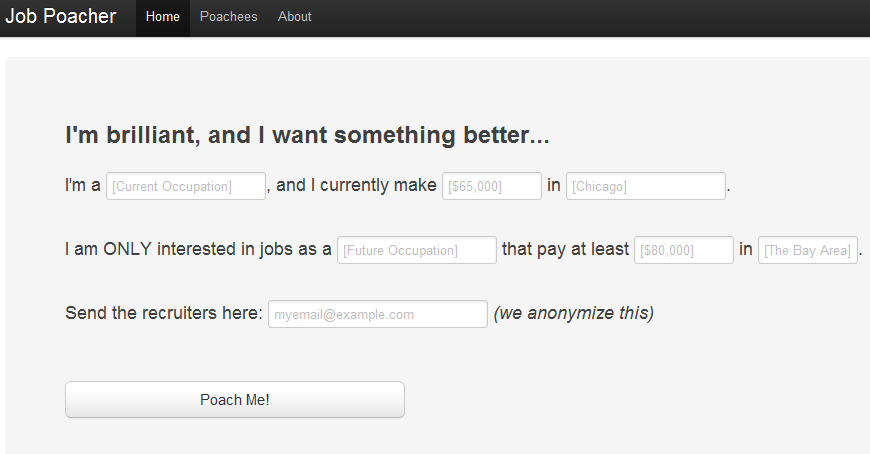You've probably heard or read about the class-action civil case to be held in San Jose meant to determine if Google, Apple, Pixar, Lucasfilm, Adobe, Intel, and Intuit in various combinations conspired to eliminate or at least reduce competition for skilled labor by entering into illegal 'anti-poaching' or 'Gentlemen's agreements' where these firms would cease recruiting from each others employee bases.
While the tech focused sites like TechCrunch have been following the story for quite some time, as far as I can tell, the only HR/Recruiting writer to have a take on the issue was Kris Dunn at the HR Capitalist, with a piece called 'Hey CEO: Your High Level Agreements Not to Poach Employees are Anti-Trust Violations...', where KD quite succinctly and correctly warns HR and Recruitng pros against entering into such agreements, even when the CEO wants to help a 'friend' at a competing firm, or when two firm's leaders kind of give a wink and a nod to each other, both knowing back and forth poaching (usually) ends up in increasing costs, delaying progress, and even (horrors!), having to keep and extra HR or Recruiting pro on staff to deal with all the churn.
It's an interesting story and I recommend the TechCrunch coverage as well as KD's take on it, but one other aspect of the story, slightly linked, and also covered on TechCrunch, is related to a new 'recruiting' site called Job Poacher. Job Poacher seems to have been at least partially inspired by the high-tech poaching case, and part of that response was to create an anonymous, simple, and direct platform for employees that, well, want to be 'poached' without their current company knowing.
 Job Poacher 'registration'
Job Poacher 'registration'
Job Poacher is a site that "lets you make yourself available to recruiters, without exposing your identity or giving up your email address. We set you up with an anonymous email address that you control — just like on "Craigslist".
After a potential candidate provides the basic information in the 'poachee' profile, their listing appears on the 'Poachees' tab on the site, and interested recruiters can message them via a simple 'Reply' button.

From then on the prospect and recruiter can connect and figure out if there is any interest, suitability, and so on.
There are two things I really like about Job Poacher and I think are worth noting. One, sometimes, maybe almost all the time, looking for a new gig when you are currently employed can be really tough to keep under wraps. Buffing up your LinkedIn profile, dusting off the old personal blog that had been dormant, trading the T-shirt and cargo pants look for some sharper duds are all tell-tale signs that something might be up, and that something often needs to be kept quiet.
And two, I really like the incredibly simplicity of the registration process. Seven simple bits of information are asked for, presented in a way that makes it seem like less, and in a manner that makes the user feel more like they are telling a little bit of a story about themselves rather than mindlessly filling in another web form that they've done probably hundreds of times. When you look at the form, it makes you want to tell that little story. Even the header, 'I'm brilliant, and I want something better', is miles more engaging than most job sites pitch to 'Fill in the 17 fields below and we will (if we remember) to email you of suitable matching jobs in the future.'
I know there are a million holes that can be poked in what Job Poacher is doing here, and I am not trying to argue it can or will be an effective site for job seekers or recruiters, but I do think there are some lessons to learn about simple design, responding to a need with that design, and not over-complicating it all.
What do you think? Would you use a site like Job Poacher?